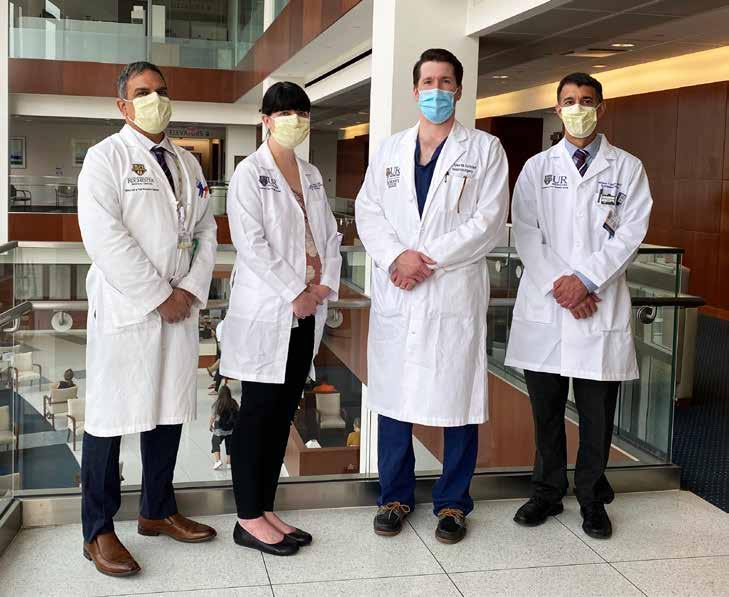
2 minute read
Mental Health is Key to Overall Health
Mental and behavioral health issues have risen dramatically across our community as a result of the COVID-19 pandemic. A survey conducted in June of this year showed that 40% of U.S. adults reported struggling with mental health or substance abuse.₁ With these numbers rising, it’s more important than ever to take the whole-person approach to care and address patients’ mental well-being, especially in those with acute and chronic conditions.
Whether you are a psychologist, primary care provider, or specialist, checking in with your patients can make a difference in their overall health. This may seem difficult with social distancing and patients hesitant to seek in-person care. Telehealth can help overcome these obstacles and uncover common comorbidities like depression, anxiety, or substance abuse.
Advertisement
With the explosion of telehealth adoption, we’re finding that it offers a unique opportunity to catch a glimpse of patients’ lives in a way that was not previously possible. For instance, you can develop a better understanding of someone’s home environment and family life by taking note of their surroundings or listening to background noise. By recognizing these influences, you can better identify stressors that may impact a patient’s mental health and prevent them from getting care.
For patients with chronic conditions like diabetes or heart disease, mental health comorbidities can have a serious impact on how well they manage their condition. It can make medication compliance or following a plan of care difficult.
BlueCross BlueShield is seeing a drop in the number of patients getting essential care. In the diabetic population alone, endocrine, nutritional, and metabolic claims dropped from about 95K in July 2019 to just 60K in July 2020.₂
By continuing to connect patients with mental and behavioral health resources, we can set them on the path toward better overall health. Those hesitant to see a counselor may be more open to a telehealth visit. Mental health remains the top claim for telehealth, and an increasing number of people are finding it to be a preferred option for behavioral health care.
By Kristin Stievater Ahrens, M.D. Behavioral Health Medical Director, BlueCross BlueShield of Western New York
Many BlueCross BlueShield patients also have access to Doctor On Demand, which offers one way for those without a local provider to access needed care.
It’s more important than ever to keep the conversation going with patients during this challenging time. Check out BlueCross BlueShield’s new Behavioral Health webpage for more resources to share.
₁ Mental Health, Substance Use, and Suicidal Ideation During the COVID-19 Pandemic, The Centers for Disease Control and Prevention
₂ BlueCross BlueShield of Western New York
ADVERTISERS
St. Ann’s Community - inside front cover Medical Liability Mutual Insurance Co. - back cover Plastic Surgery Group of Rochester - pg 26 General Physicians, PC - inside back cover West Ridge OBGYN - pg 4 Vascular & Endovascular Center of Western NY - pg 14 Rochester Regional Neuroscience Institute - pg 19 Roswell Park - pg 12










